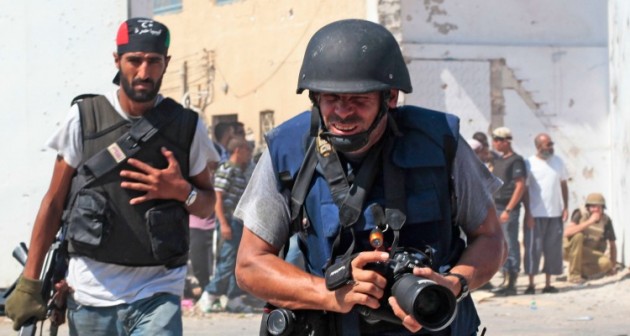- Posted on : July 3, 2012
- Posted by : Tom Fletcher
Last week was full of surprises.
On Sunday night, Valerie Amos, head of UN humanitarian affairs, arrived at short notice. I had worked closely with her several years ago when she was a Minister for Africa, so it was great to reminisce. But more importantly, we were able to discuss how best to persuade the Syrian government to accept a visit from her, and how the international community could dramatically increase humanitarian support to civilians suffering in Homs and elsewhere. By midweek, it was clear that the Syrian regime were not yet ready to allow her in – a huge frustration and disappointment. Meanwhile, the bombardment of Homs intensified.
Just as Valerie left our house in Beirut, we received word that Paul Conroy, the Sunday Times journalist badly injured in Homs, had at last – and after several efforts – managed to escape across the Syrian border. With my consular and close protection team, I went to find him. He was in a pretty bad way, having had an incredibly traumatic experience. His leg was badly injured, he had shrapnel in his torso, and he had spent a week listening to the shells as they fell around his building. We decided to move him immediately to my house, where we were able to nourish him (pancakes, cigarettes and whiskey), clean him up, get medical treatment, exchange information that could aid his French and Spanish colleagues to escape, and help him to start the process of recovery. Paul was clearly a man of exceptional resilience and fortitude. He had willed himself to survive against the odds, in order to tell the world the story of what he had seen and heard in Homs. His arrival in the relative safety of Beirut was thanks to the tenacity and compassion of many people, taking great risks, along the way. We cannot name them all. But we can name their courage.
The day Paul left for London, I hosted a long planned dinner for adventurers, heroes and pioneers to mark the 100th anniversary of Captain Scott’s epic expedition to the South Pole, in which Scott and his team perished. For me, the week’s events came together as Maxime Cheya, Lebanon’s inspirational world champion (and a veteran of both Poles and the seven highest peaks) read to us Captain Scott’s final diary entry:
‘Had we lived, I should have had a tale to tell of the hardihood, endurance and courage of my companions which would have stirred the heart … These rough notes and our dead bodies must tell the tale.’
So it is now for many of the civilians who were killed in Homs. But the bravery of those who helped Paul escape means that he is able to offer the world his chilling testimony of what has happened. And Valerie Amos has now succeeded in gaining access to Syria, the platform – we must all hope – to get vital humanitarian help to those still suffering. Scott would recognise kindred ‘hardihood, endurance and courage’. So should we.

